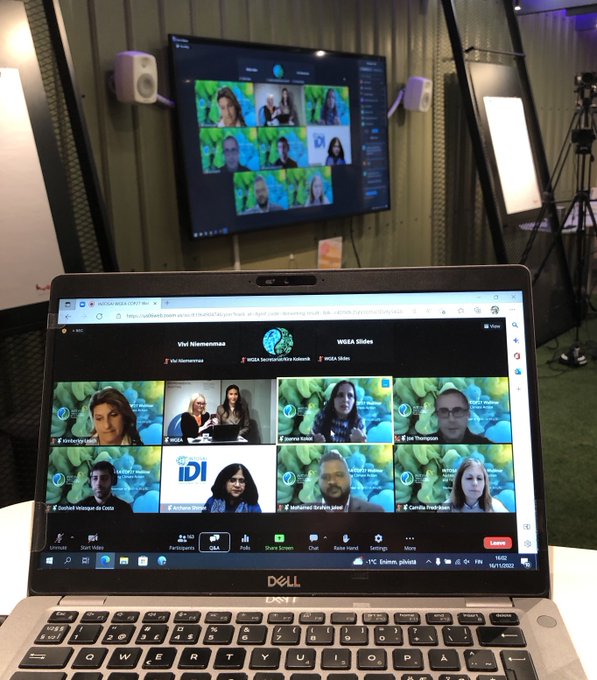WGEA COP27 Webinar Now Available to Watch
23.11.2022
INTOSAI WGEA organized a webinar in the context of the UN Conference of Parties of the Climate Change Convention, this year known as COP27. We had a great line-up of speakers from the SAIs of Brazil, Canada, the Maldives, the EU, USA and INTOSAI Development Initiative. As climate change affects everyone it is therefore also an important topic for government external auditors all-over the world.
Climate finance has been one of the main topics under discussion during #COP27. Auditors have pointed out the difficulty of assessing funding, as there is no internationally agreed definition on climate finance. Moreover, the mere amount of dollars mobilized does not tell much about the quality of the funding.
Consequently, the data problems that are typically the biggest barriers in environmental auditing, are a main issue also in auditing climate finance. Therefore, it is useful to have a new global coordinated project, ClimateScanner by SAI Brazil and WGEA starting in the beginning of next year with the aim of providing consolidated data on governments climate governance, financing, and public policies.
Besides data issues, another common finding is that adaptation has received less funding, but also less attention from auditors. This will change in 2023, when an IDI and WGEA project on climate change adaptation actions will start.
A particularly vulnerable area for climate change is small island developing states (SIDS). In the Maldives, the warming climate increases the vulnerability of critical infrastructure, threatens coral reefs that are essential protecting islands from coastal erosion and supporting tourism and fisheries. In this context, it is exciting to have a strategic partnership with INTOSAI Donor Cooperation on scaling up support for SAIs to address climate change, including peer-to-peer support for SAIs.
Some interesting areas of concern for SAIs include energy subsidies, forests and carbon offset markets, mechanisms to redirect private finance to sustainable direction, and climate change and biodiversity as twin crises that should be addressed also by auditors in tandem, as well as impacts of sea-level rise.
Finally, concerning how to get started with and audit, panellists gave some ideas. One starting point is to do a risk analysis and then choose the most pressing topics in each SAIs context. Moreover, SAIs could start from the national goals and the institutions that are in place and ask how they manage climate risks and implement actions. One piece of advice was to keep it simple and concentrate on government operation or lack of it. In addition, the benefits of peer-to-peer support in the context of cooperative audits was stressed.
We encourage all of you interested in auditors assessing climate action and finance to watch this webinar here.



